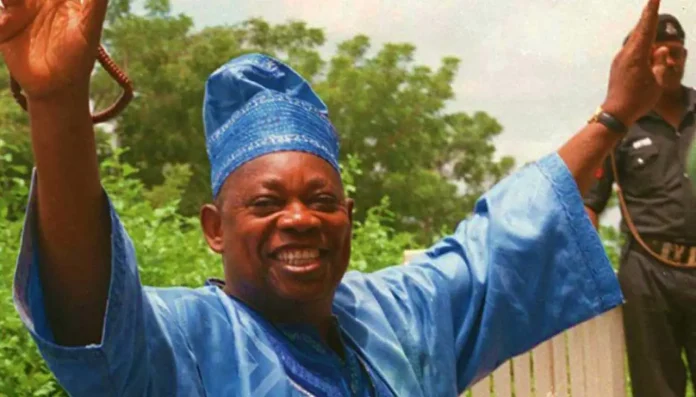For many Nigerian citizens, June 12, 1993, will remain a date not easily forgotten in the annals of history.
It is a day still talked about today due to the annulment of the presidential elections by military ruler, Ibrahim Badamasi Babangida.
Though the official results of the poll were never declared by the National Electoral Commission (NEC), statistics indicated a victory for Moshood Kashimawo Olawale Abiola (better known as MKO Abiola) of the Social Democratic Party (SDP), who defeated Bashir Tofa of the National Republican Convention (NRC).
As Nigerians celebrate the 2025 Democracy Day, Daily Sun revisits the June 12 controversy, bringing five key things to know about that date.
Freest and fairest election
The June 12, 1993, election is widely regarded as the nation’s most credible poll.
The exercise transcended ethnic, religious, and regional divides, bringing Nigerians together in an unprecedented moment of national unity.
Military regime annulment
The election results were annulled by General Ibrahim Babangida, who cited unspecified irregularities, harping on the need to “save the nation.”
Babangida’s decision, which was made without clear jurisdiction, led to widespread outrage, plunging Nigeria into a political crisis.
During his autobiography launch in February 2025, Babangida expressed regret over the annulment.
Protests and repression
As expected, the annulment triggered protests and demonstrations across the country, particularly in the southwest, Abiola’s stronghold.
The military responded in a brutal manner, with hundreds of Nigerians killed and activists, including Abiola himself, apprehended.
Abiola was imprisoned for treason after declaring himself president in 1994. He died under mysterious circumstances while in custody in 1998.
Symbol of democracy
Following the events of June 12, 1993, the date became a rallying point for Nigeria’s pro-democracy movement, spurring civil society, labour unions, and students against military rule.
Their struggle resulted in the return of civilian rule in 1999.
Former President Muhammadu Buhari declared June 12 Nigeria’s Democracy Day in 2018, replacing May 29, to honour Abiola’s legacy.
Political debates and legacy
The June 12 controversy remains one of Nigeria’s most sensitive issues, leaving unresolved questions about Babangida’s motives and the military’s role.
While some advocate moving forward, others still demand justice for the casualties of one of the nation’s most memorable moments.
THE SUN


